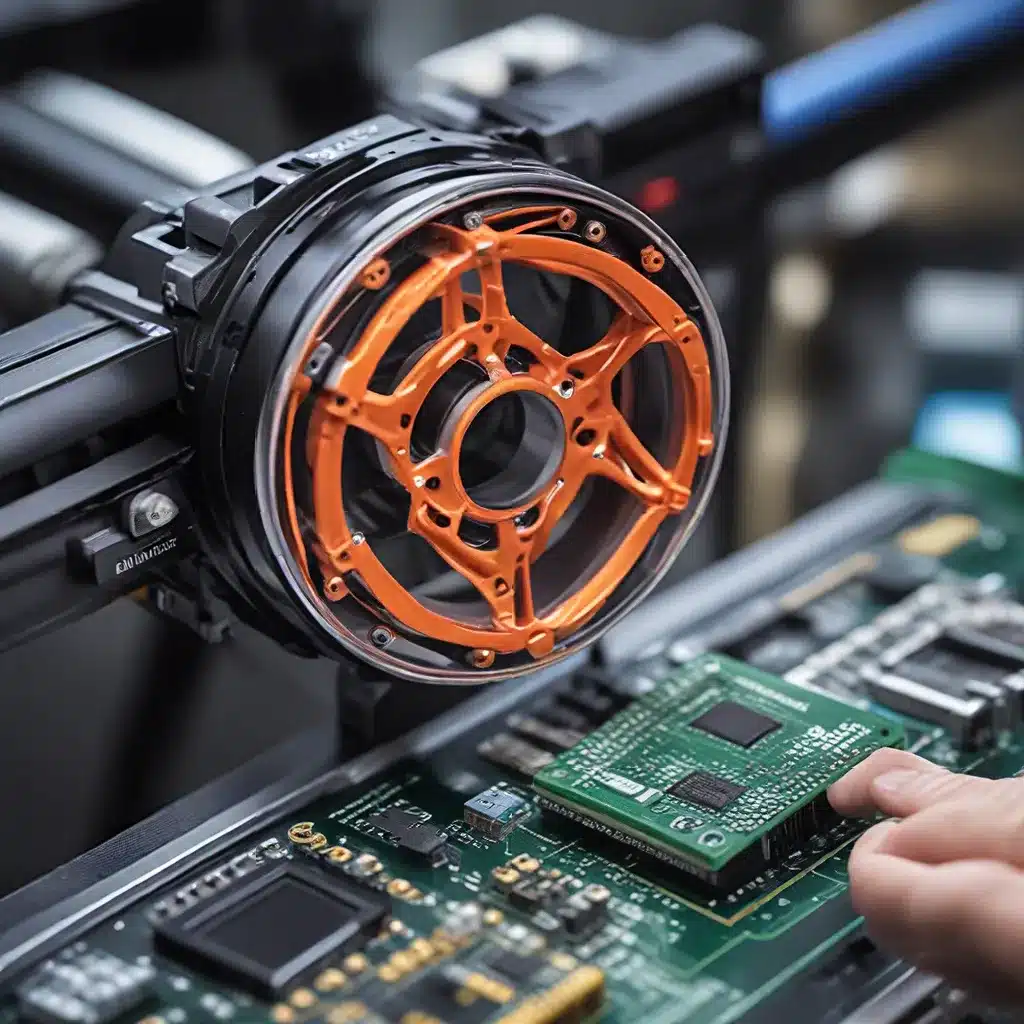
Revolutionizing Automotive Manufacturing with Collaborative Robots
Collaborative robots, or cobots, have emerged as game-changers across various industries, including manufacturing, automotive, healthcare, and logistics. Unlike traditional industrial robots that operate in isolated environments, cobots are designed to work alongside human workers, enhancing productivity and safety. In the dynamic field of automotive manufacturing, collaborative robots offer innovative solutions to persistent challenges, enhancing efficiency, precision, and productivity.
Automotive manufacturers handle a variety of product styles and face intricate inspection requirements that traditional methods often struggle to manage. Collaborative robots with advanced vision systems can easily adapt to these diverse tasks, ensuring thorough and accurate inspections across different components. Manual inspections are prone to errors and lack of traceability, leading to missed defects and potential product damage. Collaborative robots provide consistent, accurate inspections and real-time data logging, reducing errors and improving quality control.
Some inspections require angles difficult for fixed cameras. Collaborative robots with articulated arms and movable cameras can reach tight spaces and capture comprehensive views, enhancing quality control and ensuring no defects are overlooked. In summary, collaborative robots effectively tackle complex inspections, reduce error rates, improve traceability, and navigate challenging inspection angles, significantly enhancing manufacturing efficiency and quality.
Key Benefits of Collaborative Robots in Automotive Manufacturing
There are at least 5 key benefits of using collaborative robots in the automotive industry:
-
Adaptability to Diverse Tasks: Cobots can easily handle a variety of tasks, from assembly line automation to quality control and material handling, making them highly versatile in the dynamic automotive manufacturing environment.
-
Enhanced Precision and Accuracy: Collaborative robots with advanced vision systems and articulated arms can perform precise, comprehensive inspections, reducing errors and improving overall quality control.
-
Improved Traceability and Data Logging: Cobots provide real-time data logging of inspection results and product details, enhancing traceability and enabling data-driven decision-making.
-
Navigating Challenging Inspection Angles: The movable cameras and articulated arms of collaborative robots allow them to access tight spaces and capture comprehensive views, ensuring no defects are overlooked.
-
Increased Productivity and Efficiency: By automating complex tasks and performing inspections with consistent accuracy, cobots contribute to enhanced manufacturing efficiency and overall productivity.
Implementing Collaborative Robots in Automotive Manufacturing
A renowned brand manufacturer in the automotive industry sought to enhance their production lines’ efficiency and accuracy. They aimed to improve the examination of automobile appearance, engine components, and interior spaces, ensuring high-quality assembly and reducing error rates.
The manufacturer implemented an advanced solution using cobot arms and cameras integrated with an AI system. This system was designed to inspect various parts of the automobiles, including the exterior, engine, and interior spaces. This integration allowed for thorough and rapid inspection processes, significantly enhancing the accuracy and efficiency of the production line.
The AI system confirmed all assembly parts and recorded examination results along with image data in a centralized database, ensuring traceability and quality control. By implementing this advanced cobot-based solution, the automotive manufacturer was able to dramatically improve their manufacturing processes, reduce errors, and ensure the delivery of high-quality vehicles to their customers.
The Future of Collaborative Robots in Automotive Manufacturing
As the automotive industry continues to embrace automation, collaborative robots are poised to undergo significant advancements that will revolutionize manufacturing processes. These advancements are centered around the integration of advanced AI and machine learning capabilities, as well as the incorporation of sophisticated sensor technology.
AI-Powered Vision Systems and Dynamic Adjustments
At the heart of the impact of collaborative robots in automotive manufacturing is the integration of AI-powered vision systems. These systems enable cobots to process and analyze visual data in real-time, revolutionizing critical tasks like quality control and product inspection with unparalleled accuracy.
Furthermore, AI empowers cobots to dynamically adjust their operations, enhancing productivity and workplace safety by reducing human errors and hazards. This integration underscores the role of cobots in maintaining production standards and prioritizing worker safety in dynamic manufacturing environments.
Advancements in Sensor Technology
Cobots are increasingly integrating advanced sensor technology to expand their perception capabilities. These advancements include AI-driven vision systems for high-resolution imaging and object recognition, tactile sensors for precise handling, and force-torque sensors to enhance assembly operations.
Moreover, environmental sensors such as lidar and radar enable cobots to navigate safely around obstacles, thereby improving both production efficiency and workplace safety through reliable interactions with human operators.
Integrating Cobots with IoT and Cloud Computing
The integration of cobots with the Internet of Things (IoT) and cloud computing represents a pivotal advancement in manufacturing intelligence. At the heart of this evolution lies cloud-enabled AI vision, where data captured by cobots’ AI vision systems is seamlessly transmitted and processed in the cloud.
This integration leverages IoT connectivity to deliver real-time insights and predictive analytics, empowering automotive manufacturers with agile decision-making capabilities. By scaling operations efficiently and embracing cloud computing, manufacturers ensure that cobots equipped with AI vision remain catalysts for innovation in smart manufacturing initiatives.
Conclusion
Collaborative robots are transforming the automotive industry by enhancing efficiency, precision, and productivity. Cobots from leading manufacturers, such as Techman Robot, are tackling complex inspections, reducing error rates, and handling challenging angles, offering invaluable solutions to the industry’s persistent challenges.
By integrating these advanced collaborative robots, automotive manufacturers can significantly improve their production processes and maintain a competitive edge in the dynamic and rapidly evolving manufacturing landscape. To learn more about how collaborative robots can transform your automotive manufacturing operations, visit the Sensor Networks website for a free consultation.